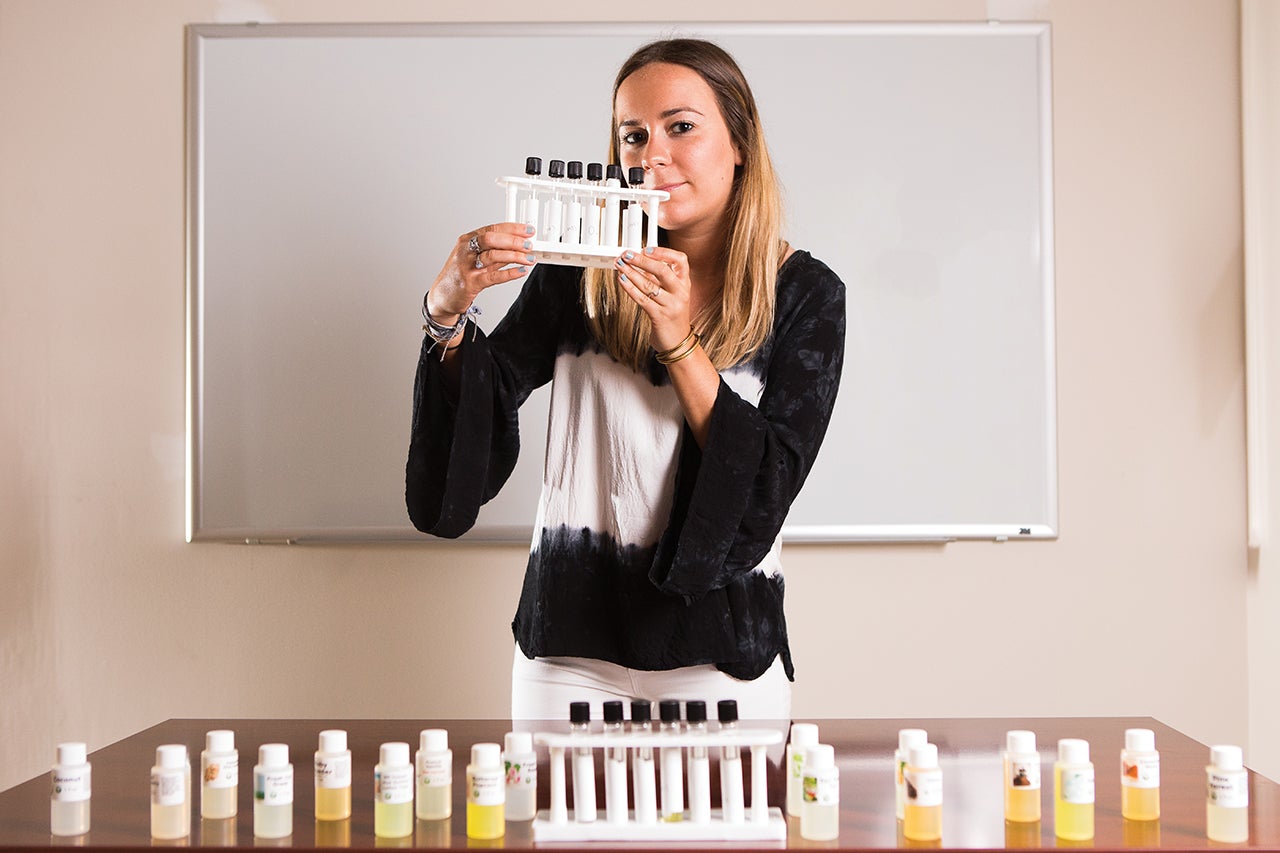When you’re searching for your life’s true calling, sometimes you just have to follow your nose. Lucky for her, Dollie Jennings ’18 didn’t have to sniff around too long before discovering her passion for research in cognitive psychology.
“I fell in love with psychology in the Gateway to Neuroscience Learning Community during my very first semester at the College,” she says, adding that it was in that class that Dan Greenberg, associate professor of psychology, first encouraged her to pursue the subject. “Until then, I didn’t know that psychology was my passion, but – from there – I just ran with it.”
She hasn’t stopped since.
“She’s taken advantage of just about everything our department has to offer,” says Greenberg, who worked with Jennings on a research project involving odors and memories. “Odors are some of the most powerful triggers for memory in existence. A smell can unlock a memory that we haven’t thought about in years, transport us back to an earlier place and time and immerse us in reminiscence
and nostalgia.”
And that, it turns out, is good for our health.
“We know that the more positive memories we have, the better our psychological well-being – we’re happier when we have good memories,” explains Jennings, who grew up in Columbia, S.C. “People without a sense of smell have fewer of these memories and are also more susceptible to depression.”
“So odor cues are important,” adds Greenberg, “but we don’t know very much about how they work across the lifespan, and we don’t know how people’s life experiences affect the memories they’re likely to retrieve.”
And that’s what he and Jennings aim to find out. Their study includes a group of older adults and a group of younger adults, who – after being presented with scents that include everything from generic smells like disinfectant and coffee to distinctly Southern smells like confederate jasmine and pluff mud – are asked about the memories and emotions each smell triggers for them.
“We also want to know if these different odors evoke different memories in Southerners and Northerners, which, in turn, will help us learn how odors and memory really interact,” says Greenberg. “All of this will – we hope! – provide us with new insights into the workings of the human mind.”
There is, of course, much to be learned about the human mind – and this is just one of three studies Jennings is currently helping to conduct. She is also working with some Medical University of South Carolina faculty, using MRI brain scans to study ADHD and substance abuse as well as the relationship
between odors and PTSD. In addition, she has ongoing research involving cognitive-behavioral therapy for PTSD through MUSC, where she hopes to pursue her Ph.D. in neuroscience after graduation.
“I wanted to dip my toes into everything so I knew what I didn’t want to do before graduate school,” says Jennings, who has also served as a supplemental instruction leader in the psychology department multiple times and as a teaching fellow in Greenberg’s Cognitive Psychology course this past semester. “I think what’s been most valuable about getting all these different experiences is finding out my real interests and what I really want to do moving forward.”
And that, of course, is nothing to sniff at!
Featured image: Dollie Jennings ’18 samples different scents. (Photo by Mike Ledford)




